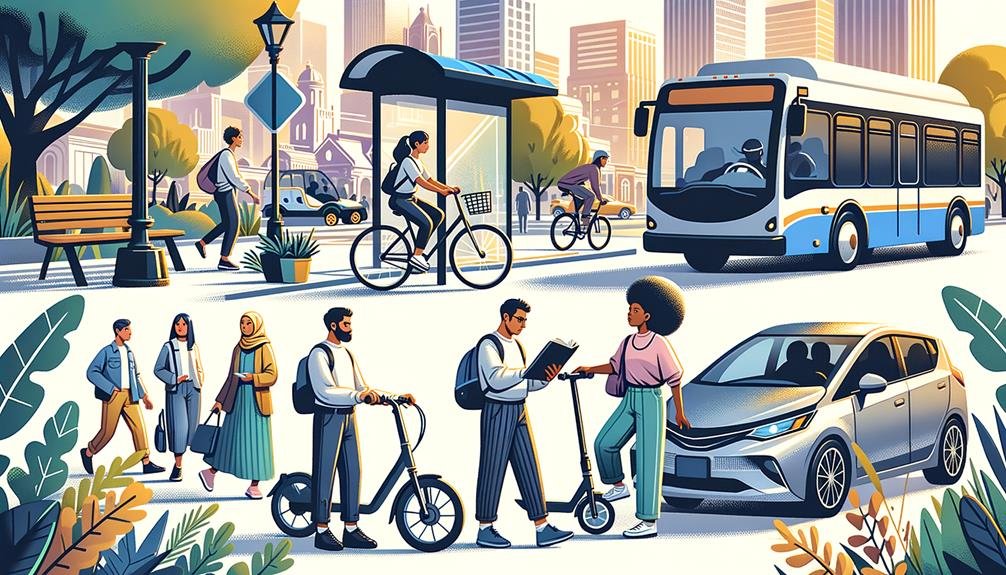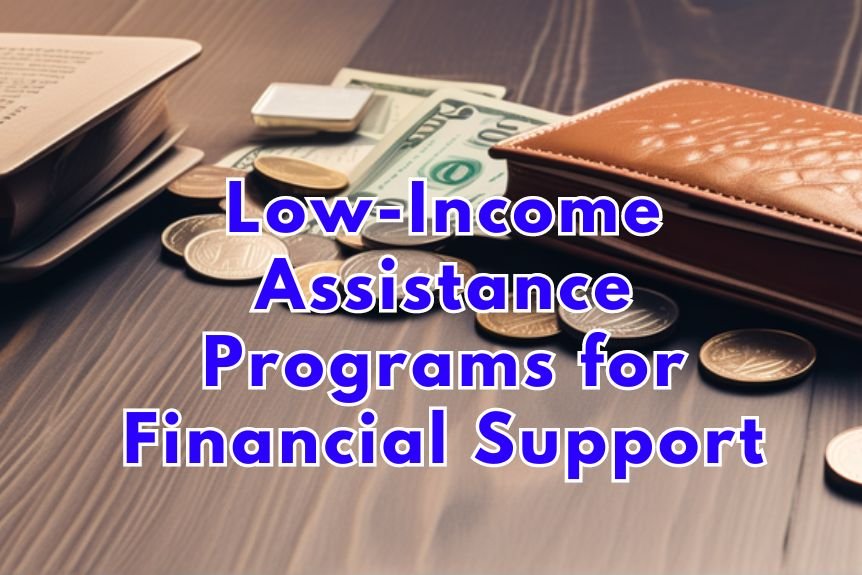After experiencing car repossession, you might be feeling overwhelmed, but there are several steps you can take to secure financial assistance. Start by communicating openly with your lender about your current financial situation; they may offer alternative payment arrangements or temporary deferments. Additionally, explore government aid programs designed for individuals in your situation. It's also beneficial to contact non-profit organizations that provide financial counseling and assistance. For long-term stability, consider credit counseling services to help manage your debts and potentially improve your credit score. Exploring these options provides you with a pathway to regain financial health and move forward.
Understanding Car Repossession

Car repossession, a process triggered when you default on loan payments, allows lenders to legally reclaim your vehicle. This typically begins after you've missed payments for around 90 days. The lender then has the right to seize the vehicle as a means to recover the balance owed. This action stems from the agreement you sign when obtaining a loan, which includes a clause that the lender can reclaim the asset if you fail to meet your financial obligations.
Once your vehicle is seized, it's often sold at auctions. This is where the lender attempts to recoup as much of the outstanding loan as possible. However, if the auction sale doesn't cover the entire loan amount, you're still responsible for the remaining deficiency balance. This balance is the difference between what was owed on your loan and what the vehicle sold for at auction.
Understanding how repossession works can help you anticipate and possibly prevent the loss of your vehicle. It's important to communicate with your lender if you foresee difficulties in meeting your payment obligations. Proactive communication might provide options such as refinancing or a revised payment plan that could prevent defaults and ultimately repossession.
Navigating Legal Rights
Understanding your legal rights after repossession is vital for effectively moving forward. Each state's laws dictate the repossession process and safeguard your consumer rights, ensuring you receive fair treatment. It's important that you're aware of these rights to protect yourself and potentially negotiate better outcomes.
Firstly, make sure you receive a notice detailing your rights post-repossession. This document is fundamental in understanding what actions you can take next. You should also request billing statements from your lender, which will provide a clear view of your account's status and what led to the repossession.
Exploring options such as redemption — buying back your vehicle — or reinstatement — resuming payments on your vehicle — can be viable routes. Knowing these options helps you make informed decisions about how to proceed.
Lastly, consulting with a legal expert can guide you through these complex processes. An expert will help you understand your specific rights and advise on the most appropriate action based on your situation. Being informed and prepared allows you to approach this challenge with confidence, ensuring that you're taking the best steps to mitigate the impact of repossession on your financial health.
Communicating With Lenders

Often, openly communicating with your lender about your financial struggles can lead to workable solutions that prevent further complications. When you face financial difficulties, it's important to engage in effective communication with your lender. By explaining your situation honestly, you open the door to exploring alternative payment arrangements that may better suit your current capacity.
Engage actively in the negotiation process by providing all necessary documentation and details regarding your financial status. This transparency helps your lender understand your predicament and can lead to more sympathetic handling of your case. Many lenders are more inclined to work with you rather than proceed with actions like repossession, which is costly and time-consuming for both parties.
Moreover, inquire about any assistance programs they might offer. Some lenders have streamlined application processes for such programs, designed to provide relief to borrowers during tough times. By applying for these programs, you could secure temporary reductions in payment amounts or even deferments.
Exploring Loan Reinstatement
If you've faced car repossession, exploring loan reinstatement might allow you to recover your vehicle by paying the overdue amounts and associated fees. Understanding the process is important to successfully go through this option.
Loan reinstatement enables you, the borrower, to pay the past due amount along with any additional fees, thereby reclaiming your repossessed vehicle. It's important to act within a specific timeframe, typically set by the lender, to take advantage of this opportunity.
You'll need to provide proof of insurance and update your contact information with the lender as part of the reinstatement process. These steps ensure that you meet all requirements to proceed with reclaiming your vehicle. By reinstating the loan, you can avoid the negative consequences that repossession may have on your credit score and overall financial health.
It's crucial to contact your lender as soon as possible to discuss the possibility of loan reinstatement. They'll provide you with the necessary details regarding the timeframe, the exact past due amount, and any additional fees required. Being proactive and fully informed will help you smoothly go through the reinstatement of your loan and regain possession of your vehicle.
Seeking Government Aid

You can explore various government aid programs designed to assist low-income families dealing with car repossession. These grants and aid programs are crafted to help those with limited transportation options, providing important support to navigate the financial challenges you might face. Understanding the options available for government assistance can empower you to seek the support you need.
Eligibility for these financial assistance programs is typically based on income levels and specific criteria set by the assistance programs. It's important to review these eligibility criteria carefully to determine if you qualify for government assistance. By meeting these requirements, you can access various resources that aim to alleviate the burden of losing access to your vehicle.
Government organizations understand the critical role transportation plays in daily life, especially for low-income families. They offer these programs to make sure that you don't lose your mobility, which is crucial for maintaining employment and accessing essential services. If you're facing financial challenges after car repossession, don't hesitate to reach out for government support. These programs are there to help stabilize your situation and assist you in regaining your footing.
Accessing Non-Profit Resources
While government aid provides foundational support, exploring non-profit resources further enhances your options for financial assistance after car repossession. Non-profit organizations play an important role in offering grants, aid programs, and counseling services to those in need. These entities are dedicated to helping you navigate through the financial turmoil that can follow the loss of your vehicle.
You'll find that these organizations often have clear eligibility criteria and structured application processes. It's important you meet these requirements to access the available aid. Typically, they assess your financial situation to make sure that assistance goes to individuals most in need.
Beyond traditional grants and programs, non-profit resources include innovative options like peer-to-peer lending and community programs. Peer-to-peer lending allows you to borrow money directly from individuals rather than institutions, often on more favorable terms than traditional loans. Community programs, meanwhile, might offer localized support, such as temporary transportation solutions or financial planning workshops.
To start, research non-profits that focus on financial crises or car repossession. Their counseling services can also guide you through other potential aid avenues or help you manage your overall finances to prevent future distress. Remember, each step you take with these organizations brings you closer to regaining your financial stability.
Considering Loan Refinancing

Considering loan refinancing might be a viable option to alleviate financial strain following car repossession. Loan refinancing involves replacing your existing loan with a new loan, typically with better terms and conditions. This could potentially lower your interest rates, reduce your monthly payments, and ultimately decrease your overall interest costs. It's crucial to be mindful that lenders may offer varying terms, especially with a history of repossession. You'll need to carefully evaluate the terms and conditions of the new loan to make sure it aligns with your financial recovery plan.
Here's a quick overview of how refinancing could impact your financial health:
| Benefit | Description |
|---|---|
| Lower Interest Rates | Potentially reduce the rates compared to your old loan |
| Reduce Monthly Payments | Lower payments can free up your budget |
| Improve Credit Scores | Timely payments on the new loan can rebuild your credit |
| Manageable Terms | Customized terms based on your current financial situation |
| Reduced Overall Costs | Less spent on interest over the life of the loan |
Repairing Credit Post-Repossession
After exploring loan refinancing options, it's important to focus on repairing your credit following a car repossession. Late payments and the repossession itself can greatly damage your credit score, as these marks can remain on your credit report for up to seven years. Understanding the credit impact of these events is vital for your financial recovery.
To begin improving your credit, prioritize timely repayments on any remaining debts. Setting up repayment plans can help manage these effectively, showing dedication to resolving your financial obligations. This proactive approach can gradually lessen the negative effects of past late payments.
Additionally, consider engaging with a credit counseling service. These professionals offer tailored advice on debt management and can assist you in developing a detailed strategy to boost your credit score recovery. They can also guide you in budgeting to cover repossession expenses while still fulfilling other financial commitments.
Evaluating Alternative Transportation

If you've faced car repossession, exploring alternative transportation options can be a practical and cost-effective way to navigate your daily commute. Public transportation, such as buses and trains, offers an affordable route to maintaining your mobility without the financial burden of car ownership. This choice not only supports your budget but also contributes to sustainable travel by reducing your carbon footprint.
Ride-sharing services like Uber and Lyft can fill the gaps when public transportation isn't available, providing convenience for shorter trips. Alternatively, consider carpooling with colleagues or neighbors. This not only splits costs but also builds community connections, easing the strain of losing your vehicle.
For those living in bike-friendly cities, biking presents a healthy, economical alternative. It's not only good for your wallet and fitness but also for the environment. Walking is another viable option, particularly if you're within a reasonable distance of your workplace or essential services.
Lastly, renting a car for occasional needs can be more cost-effective than ownership, especially when you're currently seeking financial assistance post-car repossession. It allows flexibility without the financial commitment required by owning a car, aligning with a more manageable budget during this recovery period.
Utilizing Community Support Networks
While exploring alternative transportation methods can alleviate some immediate concerns, engaging with community support networks provides broader financial and emotional support during car repossession. Local churches, charities, and non-profit organizations offer important aid such as food pantries, utility assistance, and emergency funds. These resources can lighten your immediate financial burden and help you focus on long-term solutions.
Community centers and social service agencies are essential in helping you navigate the complexities of your financial situation. They offer counseling and budgeting assistance, equipping you with the tools to manage your finances more effectively. By learning to budget properly, you're not just addressing your current crisis, but you're also laying the groundwork to prevent future issues.
Moreover, these support networks connect you to additional assistance programs that provide holistic support. This all-encompassing approach ensures that you're not facing car repossession alone but are supported by a community that understands and responds to your needs.






